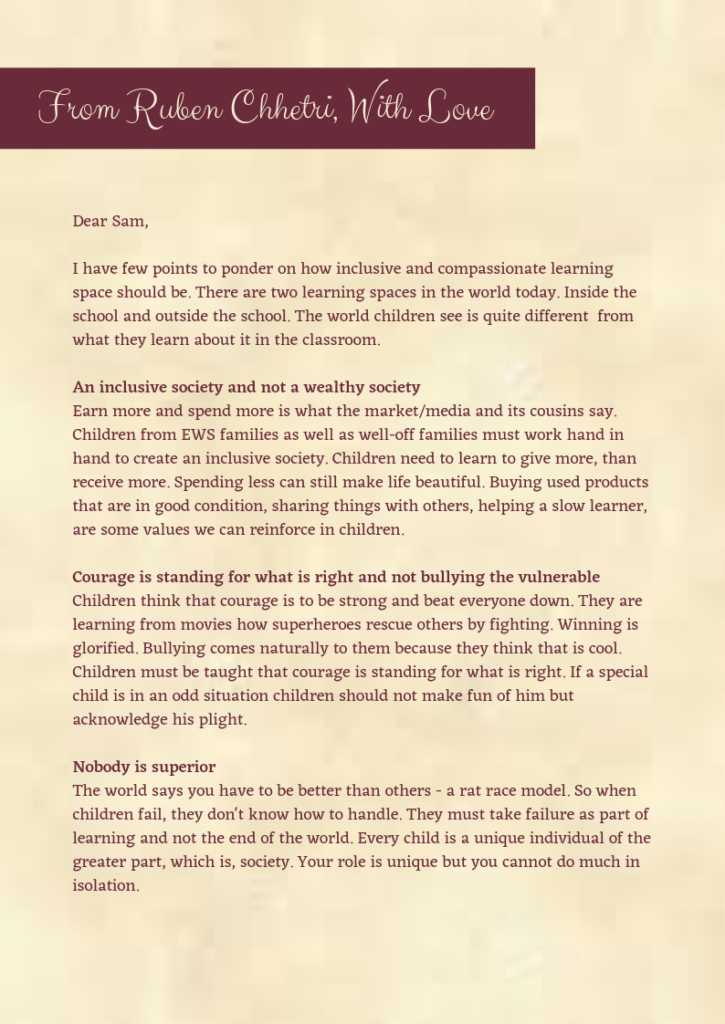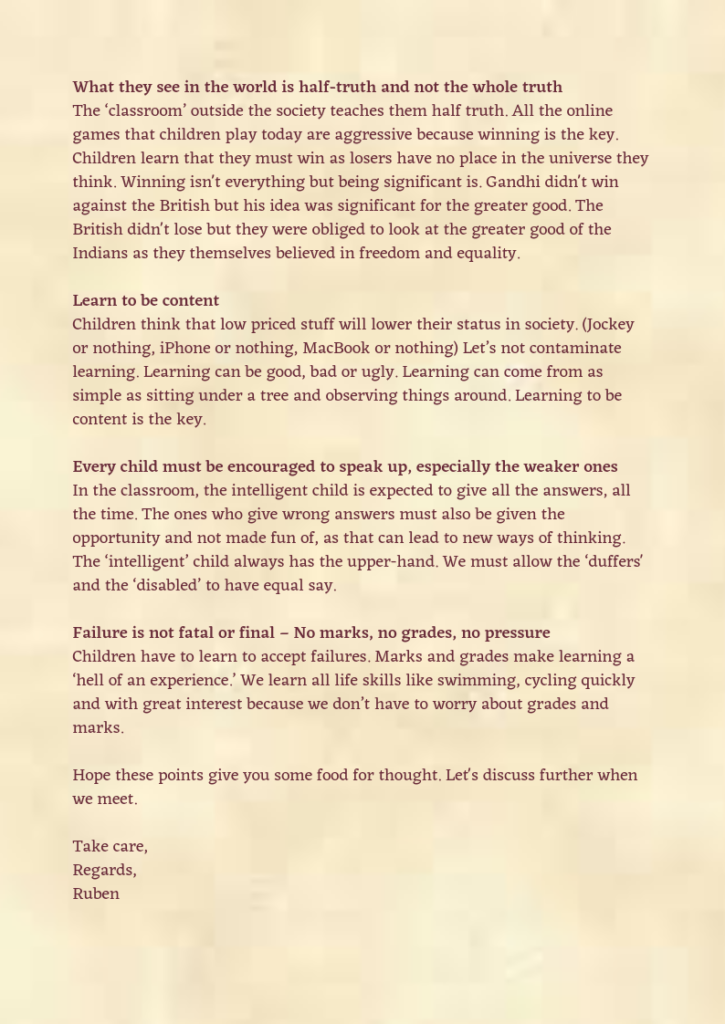

Dear Sam,
I have few points to ponder on how inclusive and compassionate learning space should be. There are two learning spaces in the world today. Inside the school and outside the school. The world children see is quite different from what they learn about it in the classroom.
An inclusive society and not a wealthy society
Earn more and spend more is what the market/media and its cousins say. Children from EWS families as well as well-off families must work hand in hand to create an inclusive society. Children need to learn to give more, than receive more. Spending less can still make life beautiful. Buying used products that are in good condition, sharing things with others, helping a slow learner, are some values we can reinforce in children.
Courage is standing for what is right and not bullying the vulnerable
Children think that courage is to be strong and beat everyone down. They are learning from movies how superheroes rescue others by fighting. Winning is glorified. Bullying comes naturally to them because they think that is cool. Children must be taught that courage is standing for what is right. If a special child is in an odd situation children should not make fun of him but acknowledge his plight.
Nobody is superior
The world says you have to be better than others – a rat race model. So when children fail, they don’t know how to handle. They must take failure as part of learning and not the end of the world. Every child is a unique individual of the greater part, which is, society. Your role is unique but you cannot do much in isolation.
What they see in the world is half-truth and not the whole truth
The ‘classroom’ outside the society teaches them half truth. All the online games that children play today are aggressive because winning is the key. Children learn that they must win as losers have no place in the universe they think. Winning isn’t everything but being significant is. Gandhi didn’t win against the British but his idea was significant for the greater good. The British didn’t lose but they were obliged to look at the greater good of the Indians as they themselves believed in freedom and equality.
Learn to be content
Children think that low priced stuff will lower their status in society. (Jockey or nothing, iPhone or nothing, MacBook or nothing) Let’s not contaminate learning. Learning can be good, bad or ugly. Learning can come from as simple as sitting under a tree and observing things around. Learning to be content is the key.
Every child must be encouraged to speak up, especially the weaker ones
In the classroom, the intelligent child is expected to give all the answers, all the time. The ones who give wrong answers must also be given the opportunity and not made fun of, as that can lead to new ways of thinking. The ‘intelligent’ child always has the upper-hand. We must allow the ‘duffers’ and the ‘disabled’ to have equal say.
Failure is not fatal or final – No marks, no grades, no pressure
Children have to learn to accept failures. Marks and grades make learning a ‘hell of an experience.’ We learn all life skills like swimming, cycling quickly and with great interest because we don’t have to worry about grades and marks.
Hope these points give you some food for thought. Let’s discuss further when we meet.
Take care,
Regards,
Ruben
Click here to access other entries!
